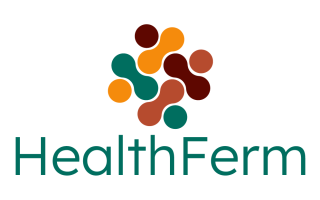Calling On Sourdough Bakers and All Fermentation Enthusiasts – HealthFerm Launches Citizen Science Experiment to Advance Research into Plant-Based Fermented Foods
Fermented foods are present in our daily diet and across different food cultures: from (sourdough) bread to beer, wine, pickles, sauerkraut, miso, kombucha and many more. Fermentation is on the rise, and many people make their own fermented foods at home. Fermentation technology could help us transition to more plant-based diets. The European research project HealthFerm wants to understand the relationships between microorganisms involved in food fermentation, the fermented food products resulting from these processes, and their effects on human health. To reach this goal, the research team of HealthFerm needs the support of citizens willing to participate in the project. At first, citizen scientists will provide information about their fermentation practices and attitudes towards fermented foods. Based on two questionnaires, researchers will then select up to 1,000 citizens who can send their fermented foods for analysis, with an initial focus on sourdough.
Depending on the geographical location, citizens can send their samples to five different partners across Europe: ETH Zurich (Switzerland), Institute of Biology Bucharest (Romania), University of Bolzano (Italy), University of Helsinki (Finland) and Vrije Universiteit Brussel (Belgium). ETH Zurich and KU Leuven (Belgium) will coordinate the citizen science project. Umeå University (Sweden) and the University of Copenhagen (Denmark) will use the data on the attitudes to inform the scientific community and policymakers about the requirements to advance and support a transition towards a more plant-based diet in the best possible way.
The microorganisms isolated from fermented foods will be used to further investigate innovative pulse and cereal-based food fermentations, together with the health effects and consumer perceptions of novel fermented foods. Data on the microorganisms, genome, and metabolites discovered in the fermented foods from citizens will become available via an online, open-access food microbiome atlas where participants will be able to assess and compare the microorganisms from their fermented foods.
Citizens in four countries were actively involved in the co-design of the questionnaires and the sampling kit. After an initial testing period, the large-scale citizen science project is now ready to start.
"Citizen science nourishes the curiosity of the general public towards scientific topics. We at Eurice strongly believe that citizen science adds great value to research", says Léna Prochnow, Senior Research and Innovation Manager for HealthFerm at Eurice.
"We are happy to contribute our expertise in science communication and citizen engagement in the HealthFerm project", adds Project Manager Dr Wannes De Man.
Registration for the citizen science project is now open and accessible in 7 different languages on the HealthFerm website.
For more information on the project and the experiment, please visit the HealthFerm website. On this webpage, you can also watch the new project clip and join the project's social media channels for updates and news.

